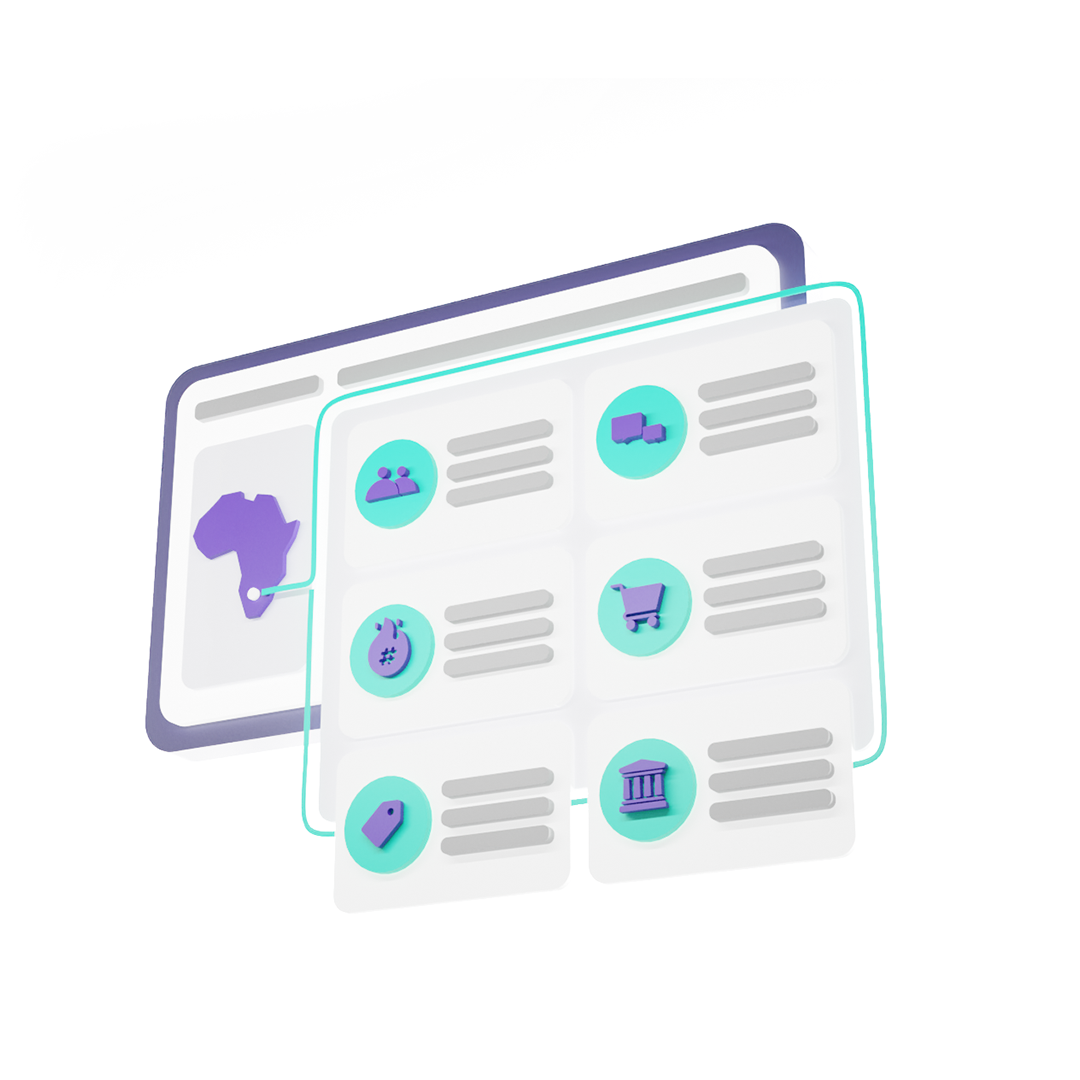Market research is an essential tool for businesses of all sizes and industries. It allows companies to understand their target audience, preferences, and behaviors, enabling them to make informed decisions and develop effective strategies. In South Africa, market research is particularly crucial due to the diverse and rapidly changing market. With numerous cultures, languages, and economic conditions, gathering accurate information and making informed decisions can be challenging. In this article, we will explore the best types of market research for South Africa, providing valuable insights into the country’s unique market and how businesses can succeed.
What to know about market research in South Africa

Market research is essential in any country, but particularly important in South Africa. The South African market is distinct, with its own complexities that must be considered when conducting market research. Here are some key points to remember:
- South Africans are diverse: Because South Africa has many different cultures and languages, it is critical to tailor your research to reflect this diversity.
- The economy is diverse: The South African economy comprises numerous sectors, each with its own distinct dynamics. If market researchers are to be successful, they must understand these dynamics.
- The middle class is expanding: Market research is becoming increasingly important as the middle class grows because it provides businesses with data about this new consumer group. Researchers must, therefore, understand how these consumers think and behave if they are to reach them successfully.
- The internet penetration rate in South Africa is increasing: Market research can be conducted by gathering opinions on social media platforms such as Twitter and Facebook. Researchers should employ all available tools to obtain the most accurate results. Market research in South Africa is essential for understanding this new consumer group and how their habits change due to shifting demographics, a growing middle class, etc. Market research provides businesses with information that allows them to understand these changes and capitalize on the opportunities that arise from them.
Five (5) Best types of market research for South Africa
Online Surveys
Online surveys are an effective and affordable way to gather data from a large audience. In South Africa, online surveys can reach a wide range of people, including those in rural areas who may not have access to traditional market research methods. Online surveys can gather information on a variety of topics such as consumer preferences, product feedback, and overall market trends. They are also easy to analyze, making it easy to identify key insights that can inform business decisions.
However, it is essential to note that online surveys have their limitations. They may not be suitable for certain demographics, such as older individuals who may not be comfortable with technology. Additionally, the quality of responses can be affected by factors such as survey design and respondent bias. To mitigate these issues, businesses should ensure their surveys are well-designed and inclusive.
Focus Groups
Focus groups are a qualitative research method that involves gathering a small group of individuals to discuss a specific topic or product. In South Africa, focus groups are valuable for businesses seeking insights into consumer preferences, attitudes, and behaviors. They help explore complex issues and understand the underlying reasons for certain behaviors.
One of the main benefits of focus groups is the ability to gather detailed and nuanced feedback. Participants can share their opinions and experiences, providing valuable insights that other research methods may not capture. Additionally, focus groups allow businesses to observe participant interactions and nonverbal cues, providing a deeper understanding of their attitudes and behaviors.
However, focus groups also have their limitations. They can be time-consuming and expensive to organize, and the results may not represent the wider population. Additionally, group dynamics can influence the responses, with some individuals dominating the conversation while others remain silent. To mitigate these issues, businesses should ensure that their focus groups are well-designed and participants are carefully selected to ensure diversity and representation.
In-Depth Interviews
In-depth interviews are a qualitative research method involving one-on-one interviews with individuals to gather detailed insights into their attitudes and behaviors. In South Africa, in-depth interviews can help understand the needs and preferences of specific target audiences, such as high-income earners or individuals in rural areas. They are also helpful for exploring sensitive topics or gathering in-depth feedback on a product or service.
One of the main benefits of in-depth interviews is the ability to gather detailed and nuanced feedback from individuals. Participants can share their experiences and opinions in-depth, providing valuable insights that other research methods may not capture. Additionally, because the interviews are conducted one-on-one, the responses are not influenced by group dynamics or social desirability bias.
However, in-depth interviews also have their limitations. They can be time-consuming and expensive to organize, and the results may not represent the wider population. Additionally, interviewer bias can influence the responses, with interviewers inadvertently influencing them through their questioning or body language. To mitigate these issues, businesses should ensure their interviews are well-designed, and interviewers are trained to minimize bias.
Ethnographic Research
Ethnographic research is a type of market research that involves observing and analyzing people in their natural environment. It can be particularly effective in South Africa due to its diverse and dynamic culture. By immersing researchers in the daily lives of South African consumers, ethnographic research can provide valuable insights into their needs, behaviors, and preferences.
One of the main advantages of ethnographic research in South Africa is its ability to uncover cultural nuances and variations. South Africa has many different cultures and languages, and ethnographic research can help capture the subtleties of these differences. This can be particularly important when designing products or marketing campaigns that appeal to specific population segments.
Another benefit of ethnographic research is its ability to understand the consumer experience deeply. By observing consumers in their natural environment, researchers can gain insights into the emotional and psychological factors influencing their behavior. This can be particularly valuable in South Africa, where consumers may have unique cultural values and beliefs that impact their decision-making processes.
By immersing researchers in the lives of South African consumers, ethnographic research can provide valuable insights into their needs, behaviors, and preferences. This type of research can help companies better understand the cultural nuances and variations in South Africa, as well as the emotional and psychological factors that influence consumer behavior.
Social media listening
Social media listening is a powerful tool for market research in South Africa. With over 38 million social media users in the country and projected to grow to over 41 million by 2025 (Statista), businesses can quickly gather data and insights on consumer behavior, preferences, and opinions. By monitoring social media channels such as Facebook, Twitter, and Instagram, companies can gain valuable information about their target audience and use this to make data-driven decisions. Social media listening can help businesses identify critical trends and issues important to their customers and adjust their marketing strategies accordingly.
One of the key benefits of social media listening in South Africa is that it allows companies to track conversations in real-time. This means businesses can quickly identify critical issues and trends for their customers and respond accordingly. For example, if a company notices a spike in complaints about a particular product or service, it can quickly address the issue before it escalates. Social media listening also allows businesses to identify and engage with influencers and advocates who can help to promote their brand.
Another benefit of social media listening is that it allows businesses to gather insights from diverse customers. South Africa is a diverse country with many different cultures and languages, and social media listening can help businesses to understand the unique needs and preferences of different groups. By analyzing social media conversations in various languages and from different regions, businesses can gain a more comprehensive understanding of their target audience and tailor their marketing strategies accordingly.
By leveraging the power of social media listening, businesses can make data-driven decisions that will help them to stay ahead of the competition and better serve their customers.
Best types of market research for South Africa: Conclusion
In conclusion, the best types of market research for South Africa will depend on each business’ specific needs and objectives. However, survey research, focus groups, in-depth interviews, ethnographic research, and social media listening are some practical ways to gather valuable insights into the South African market and consumer behavior.
In today’s rapidly changing business landscape, it is more important than ever for companies in South Africa to understand their target audience and stay ahead of the competition. While many market research types are available, partnering with reliable market research agencies for the right approach is a sure way to gather valuable insights and make data-driven decisions. However, it is essential to remember that market research is not a one-size-fits-all solution. Businesses must carefully consider their goals and target audience when selecting the best research methods. Ultimately, the companies that can harness the power of market research to understand their customers and adapt to their evolving needs indeed will be the ones that succeed in today’s dynamic business environment.










